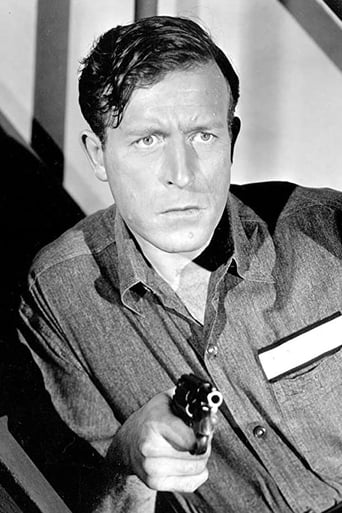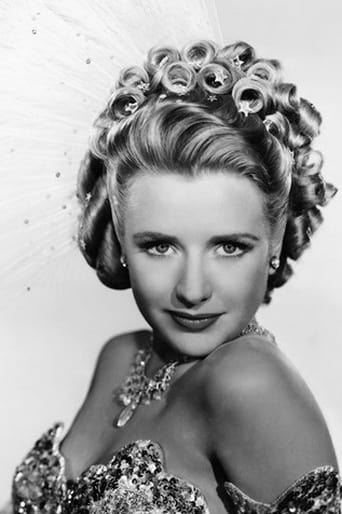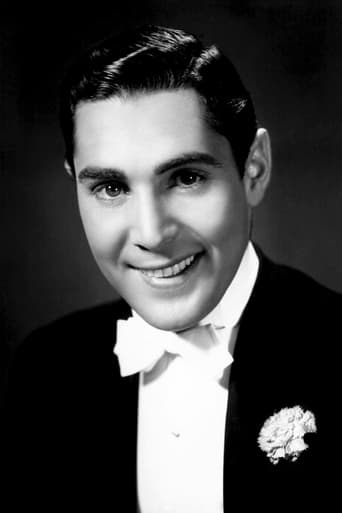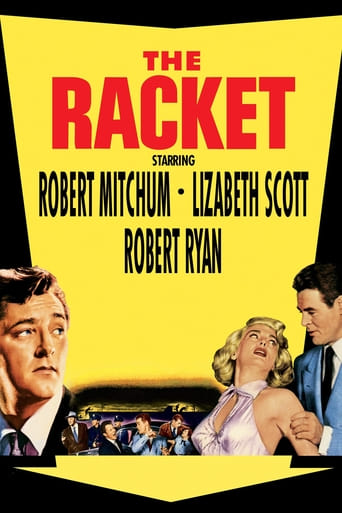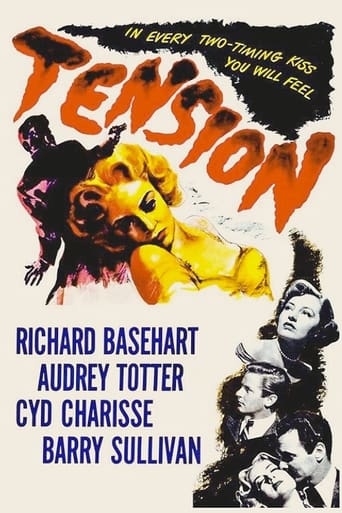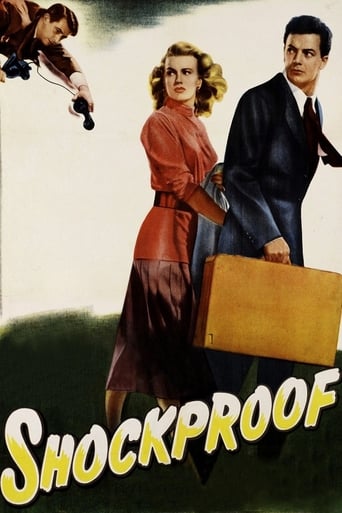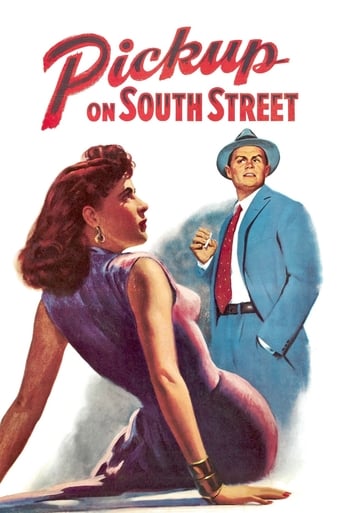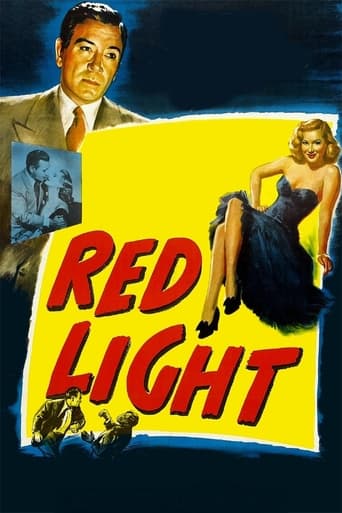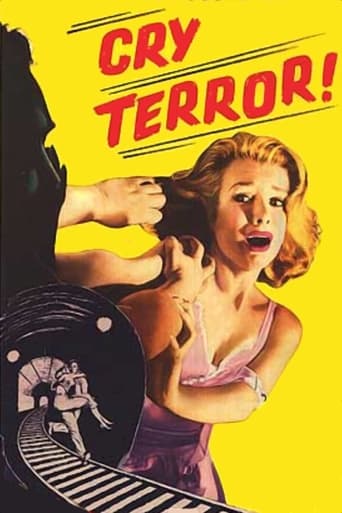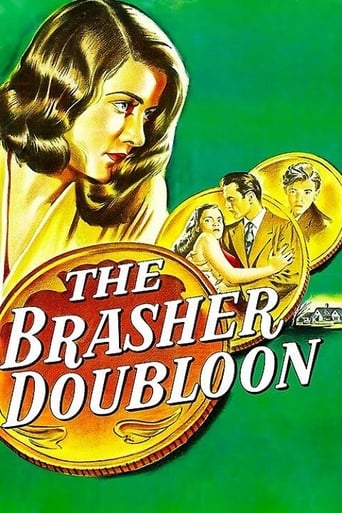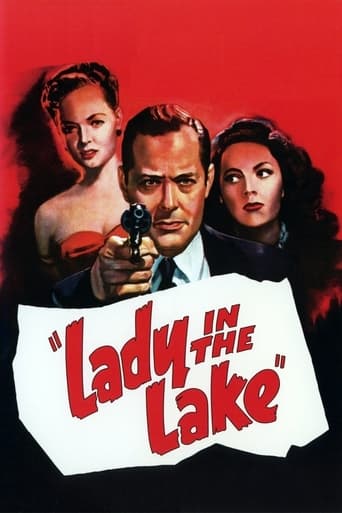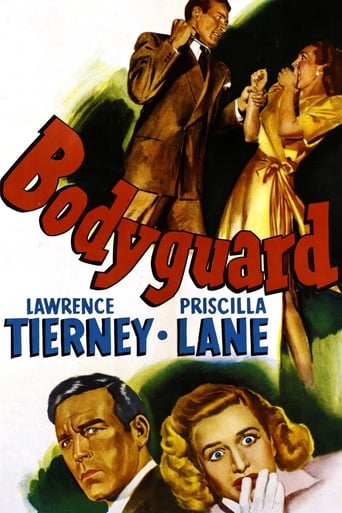
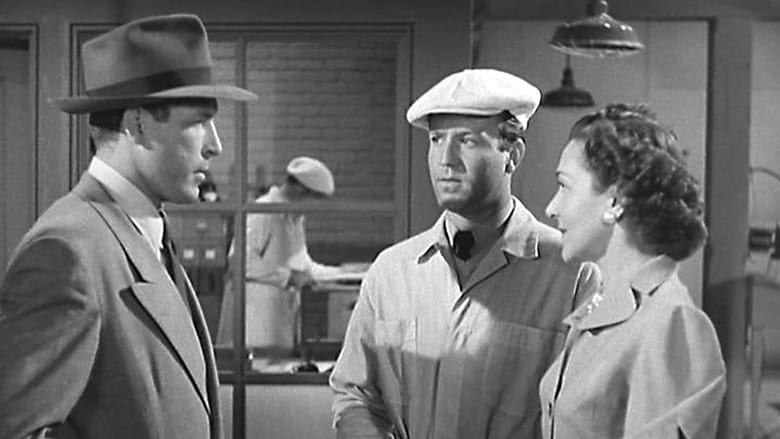
Bodyguard (1948)
A cop on suspension is framed for murder when he noses in on a murder investigation.
Watch Trailer
Cast
Similar titles
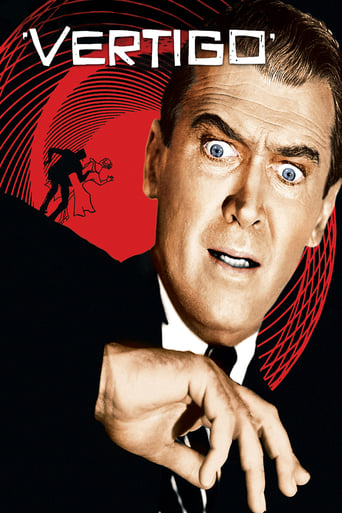
Reviews
Good story, Not enough for a whole film
Boring
Awesome Movie
It’s fine. It's literally the definition of a fine movie. You’ve seen it before, you know every beat and outcome before the characters even do. Only question is how much escapism you’re looking for.
Tough guy Lawrence Tierney portrays a disgruntled and dishonored cop who finds menial work as a bodyguard, and ends up wanted for murder! Becoming tied in with corruption at wealthy widow Elisabeth Risdon's meat factory, putting up with her abuse and nasty assistants, and fighting other criminal elements in his efforts to clear himself. Post war cynicism and big business apathy play a large role in getting this complex story off the ground with a psychological darkness that truly reflects the downward turn in society after a war that had briefly united the entire free world. This tight, short film noir is one of those unique ones that is almost in a class by itself. It's dark even when the lights are on, and really tests the limit of the code with violence, anger and ugliness. Priscilla Lane exits the sweetness of the four daughters as Tierney's girlfriend who finds herself in danger in her efforts to find the real killer. This is where the camera takes over, almost becoming a character, showing the intensity of audience emotion, the fear in Lane's eyes as she is closed in, and the evil inside the killer's soul as they target Lane's vulnerable mouse like a ravenous cat. The moody tension outweighs the predictability to where clichés are practically ignored and gives the audience moderate satisfaction at the conclusion.
BODYGUARD is a taut little thriller directed by Richard Fleischer in the early years of his career. At a trim 60 minutes, it packs in more plot than modern movies do in their two-hour running times. I especially enjoyed Lawrence Tierney in an infrequent good guy role - here he's Mike Carter, a cop with a nasty temper who gets himself fired for slugging his commanding officer. He's then approached to act as a bodyguard for an ageing widow who runs her late husband's meat-packing plant. Though he's grim-jawed throughout, and doesn't display much sense of humour at all, never mind sardonic wit, the film's noir trappings have lead many to label this a noir picture.However, lacking a deadly female leading the hero into all kinds of trouble and with no typically gloomy noir ending, I can't put this movie in that pigeonhole.The heroine is the sunny and all-American Priscilla Lane in her last film. She'd earlier made quite a splash as the fiancé of Mortimer Brewster (Cary Grant) in the madcap comedy ARSENIC AND OLD LACE, and here plays the faithful and supportive girlfriend of Tierney.There's not a lot to dislike about this film. Carter doesn't have much personality, but he doesn't need it to solve the case. The other cops are a bit one dimensional and the family at the centre of the mystery don't have a lot to do. But it clocks in at 4 seconds under an hour, and its very brevity is more of a plus point than a liability. Try to catch it if it turns up on TCM. It's a fine object lesson in economic storytelling.
BODYGUARD (1948) is a snappy 62-min. b&w noir programmer directed by Richard Fleischer and starring Lawrence Tierney. Rather than repeat what others have said here, I'd rather emphasize a couple of things that truly distinguish this film. For one thing, it was filmed largely on location at sites all over Los Angeles. Ex-policeman Mike Carter (Lawrence Tierney), trying to clear himself of a false murder charge, moves around L.A. quite vigorously in the course of his investigation, sometimes by car, sometimes by cab, and sometimes on foot, traveling to shops, offices, back alleys, factories, piers, and amusement arcades all over the city. If you like seeing film footage of L.A. in the 1940s, there are many films with abundant footage, but none quite like this one.Also, I'd like to single out a very clever scene that offers an ingenious method of transmitting key information from one location to another in the era before fax machines, cell phones, or e-mail. Carter needs the contents of a case file kept by the police officer whose murder he's been framed for. Only his girlfriend, Doris (Priscilla Lane), who works in the department, can find the file for him. He tells her over the phone to write down all the important cases handled by the officer in the past year and then go to an amusement arcade on 3rd Street, find a "Record Your Own Voice" booth and read all the cases into the microphone onto as many vinyl records (78 rpm) as needed, and then to leave the stack of records for him at the cashier's counter under an assumed name. Carter's plan is to go to the arcade, give the assumed name, enter an available booth and listen to the records until he finds the case he's looking for. There are wonderful little details of character and street life woven into the scene (and just about every scene in the movie). When Carter first enters the arcade, the brassy blonde at the counter is flirting with two sailors and claims not to know anything about a stack of records for a "Mr. Nolan." An anxious Carter gets insistent and the two sailors turn on him, spoiling for a fight. Only then does the manager come over and defuse the situation and find the package of records for Carter. It's just a brief moment but it not only adds to the suspense, but captures so much of the tenor of the time and place.The basic plot itself—corrupt industrialist covers up shady business practices via murder and convenient frame-ups—would get recycled ad infinitum on TV cop shows in the 1970s. But it might have seemed somewhat fresh back in 1948, especially after ALL MY SONS (also 1948), based on Arthur Miller's play, raised a similar issue in a drama of a wartime industrialist who sends out defective airplane parts with tragic results.
A consensus seems to exist among commentators on Richard Fleischer's Bodyguard, based on a story by the young Robert Altman. The consensus is that, as it stands, it fails to satisfy; the background to this verdict is that somewhere there is or at least was a longer cut of the picture that probably would have been, if not a little masterpiece of film noir, a less nettlesome movie.Feral Lawrence Tierney, a detective fired from the force for insubordination, gets offered the job of bodyguard to a old woman whose wealth comes from the meat-packing industry. At first reluctant, he accepts when shots shatter a mirror in the woman's home. Following her on a nocturnal errand, he's coshed on the head and comes to in his car parked on railway tracks; riding shotgun is the police officer who fired him, dead. Now the prime suspect, he lams up.Assisting him in his efforts to clear himself is Priscilla Lane, his mole in police headquarters. (They devise a curious means of communication. She reads the files onto 78s and delivers them to a record store where he listens to them in a booth.) It turns out that his murdered superior investigated the death of a meat inspector at one of the plants owned by his employer....What remains of the movie is directed with pace and even some style by Richard Fleischer (The Narrow Margin, Armored Car Robbery, The Boston Strangler; he showed a lot of sass in his early days, before he ossified into a hack.) But what we lack compromises what we have. The 13 minutes excised from the movie somewhere along the line no doubt patch up the holes in the leaky plot like, who knew Tierney was off to the optometrist's office and set up the ambush? A fuller version would probably make, as has been remarked, for a more grisly final confrontation, a la Upton Sinclair's The Jungle, in the meat-processing plant; in the print in common circulation, it abruptly fizzles out. Certainly, that's the lack most keenly felt. What with the meat saws whining and the meat grinders rumbling, surely Fleischer did not conclude the story with the malefactor hurling an empty pistol, bootlessly, at Tierney to be followed, almost instantly, with Tierney and Lane leaving on their honeymoon. Somewhere out there, a few links of blood sausage are missing.
